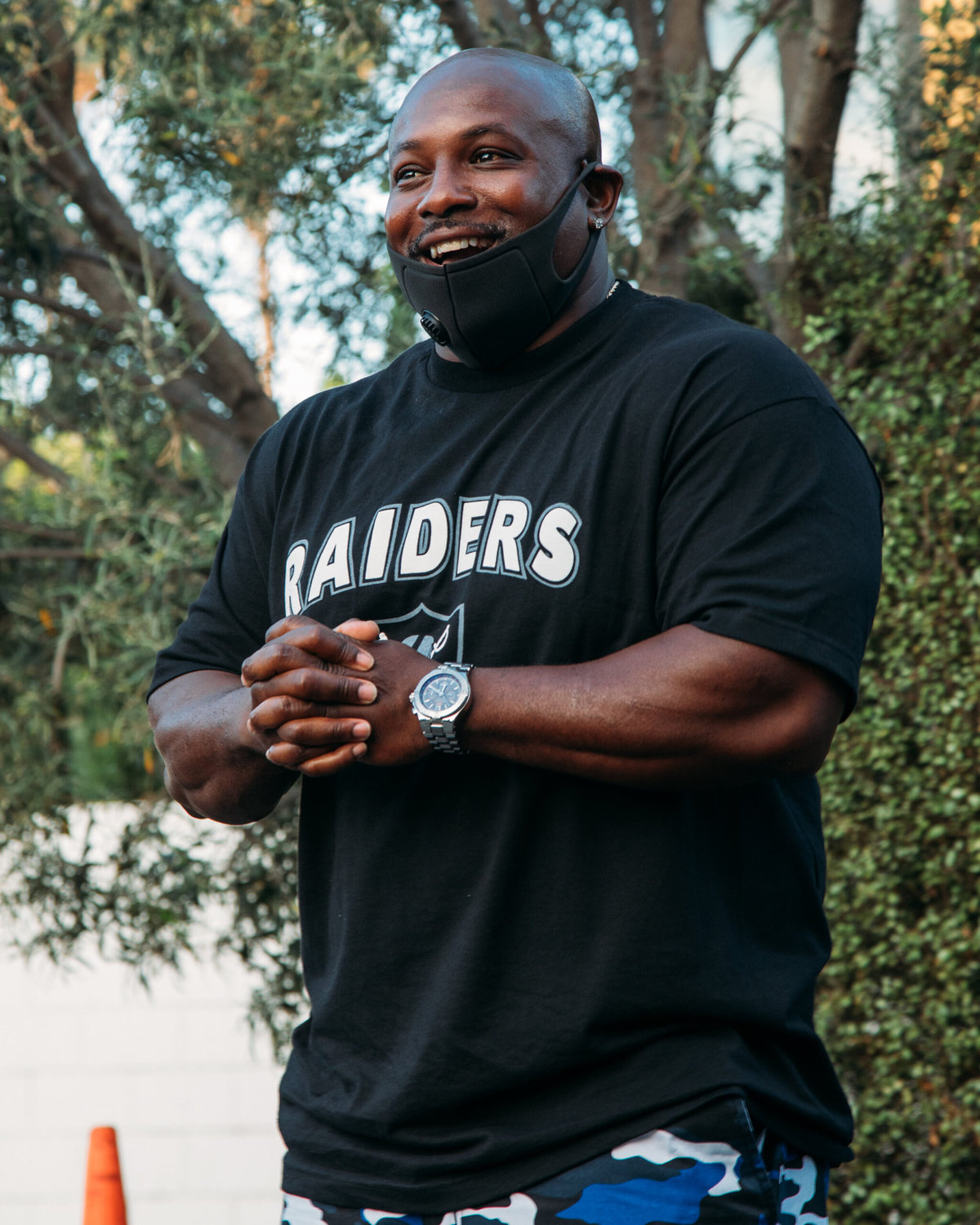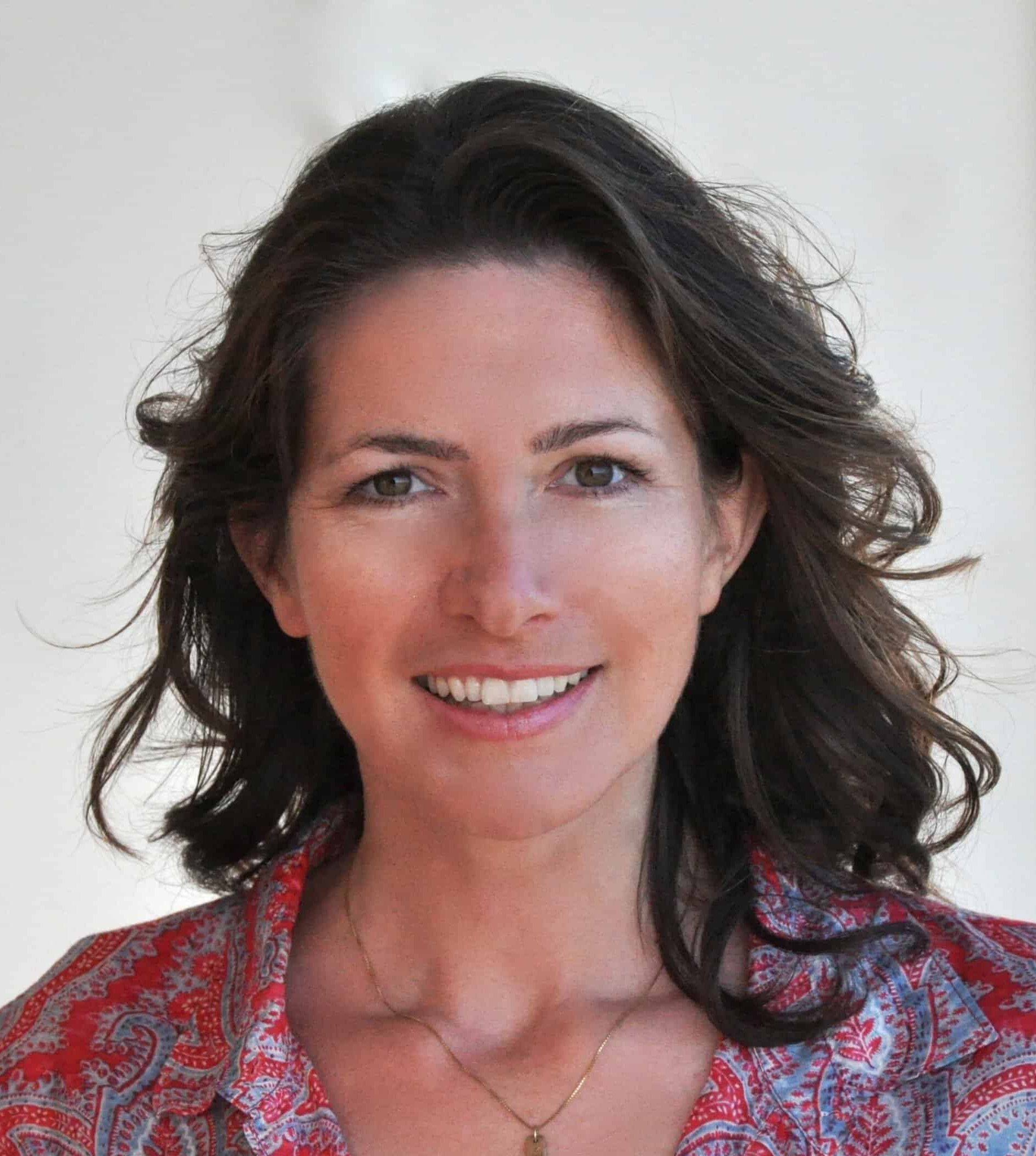Four years ago, Leslie was on the edge of homelessness. “Everything was going wrong. I was sleeping on the floor of relatives’ living rooms with my two kids,” she remembers.
Then, Hollywood called.
It wasn’t a talent scout or a casting director that brought her into the industry. It was ManifestWorks, a unique program that guides people from homelessness, incarceration and foster care directly into entry-level jobs in film and TV.
“When I started the ManifestWorks program, it was more than just learning the steps. It was really therapeutic for me,” says Leslie. “It was uplifting during a time when I was really not in a good place.”
By the third week of classes, Leslie (who prefers to only give her first name) had secured her first gig as a production assistant. The same person who hired her brought her back for the next two years and seeded additional relationships that led to more work.
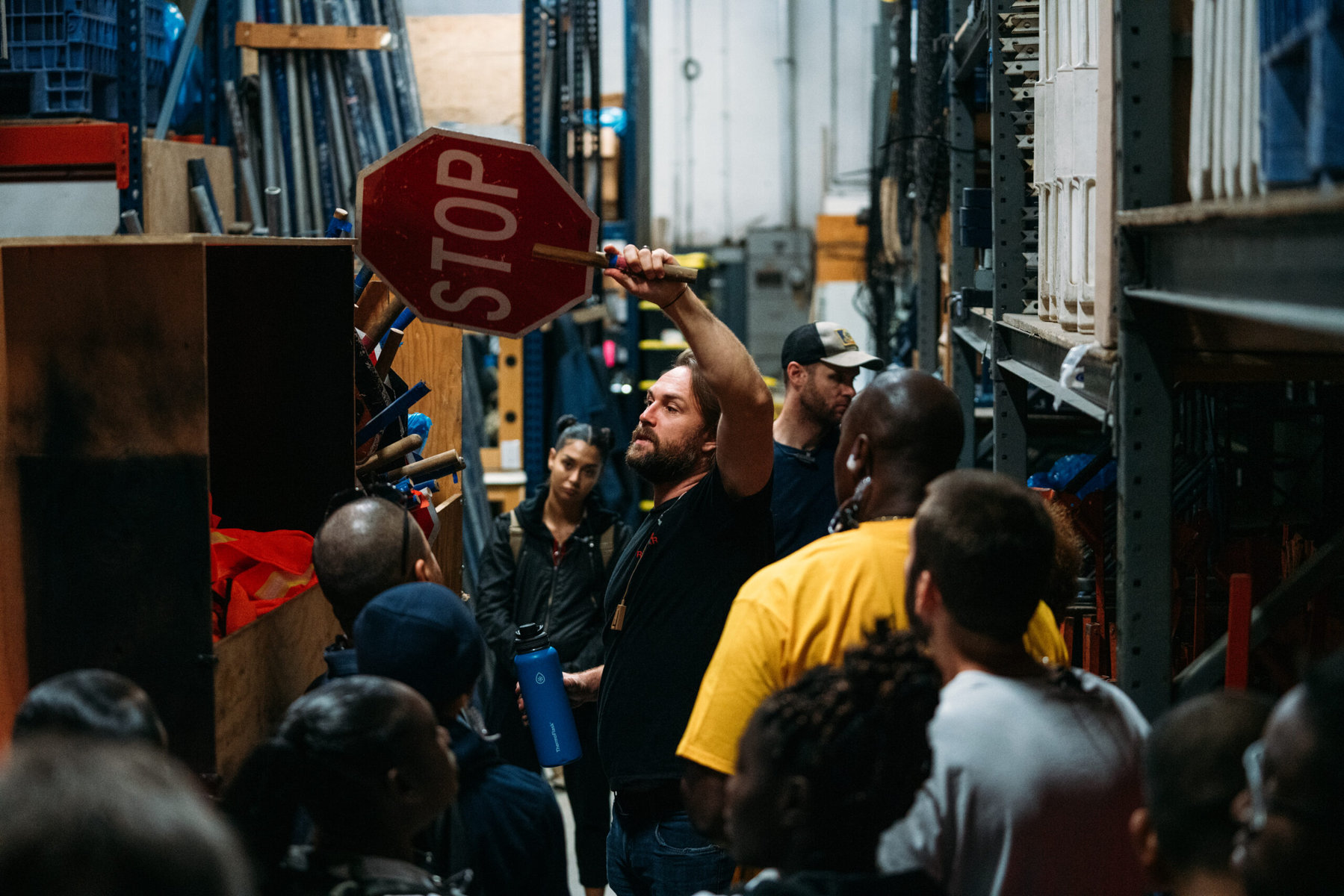
Today, Leslie works in a sound department as a union member, has consistent work at a living wage and has been able to upgrade both her housing and her car. “Life is a lot better today,” she says. “I can pay for things that my kids enjoy like baseball, private tutors and tennis lessons. We are going to Hawaii for spring break. I could never imagine doing any of this before ManifestWorks.”
The nonprofit ManifestWorks has more than 270 alumni currently working in the film industry, and purposely recruits its students from populations that face barriers to success. “We serve three different communities: people coming out of foster care, incarceration and homelessness,” co-founder and executive director Dan Seaver says. According to ManifestWorks, 25 percent of foster care youth end up incarcerated within two years of turning 18, and unemployment impacts the formerly incarcerated at a rate 12 times higher than the national average.
Crushed by negative news?
Sign up for the Reasons to be Cheerful newsletter.Seaver was working in journalism and advertising when he realized the movie studios could provide what he calls “Hollywood magic” for former inmates and unhoused youth. “Simply because of the size and scale of LA County, we face these kinds of problems with homelessness, incarceration and foster care,” he says. “But one of the most magical things is that we also have this massive infrastructure, a film industry that is lively and thriving, where people can dream about big jobs and be successful. That’s been a miracle.”
Three times a year, ManifestWorks puts 20 applicants through a grueling 11-week hands-on training for production assistant jobs that is as demanding as working on a film set. Production assistants, or PAs, don’t have set job descriptions; their tasks involve anything from setting up the director’s chair to getting coffee to scheduling. “We teach them to become indispensable,” Seaver sums up the program, which includes classes on budgeting, resume writing, financial literacy and working on a mock set. If needed, ManifestWorks will provide the students with a laptop or a headset so the graduates are equipped to land jobs.
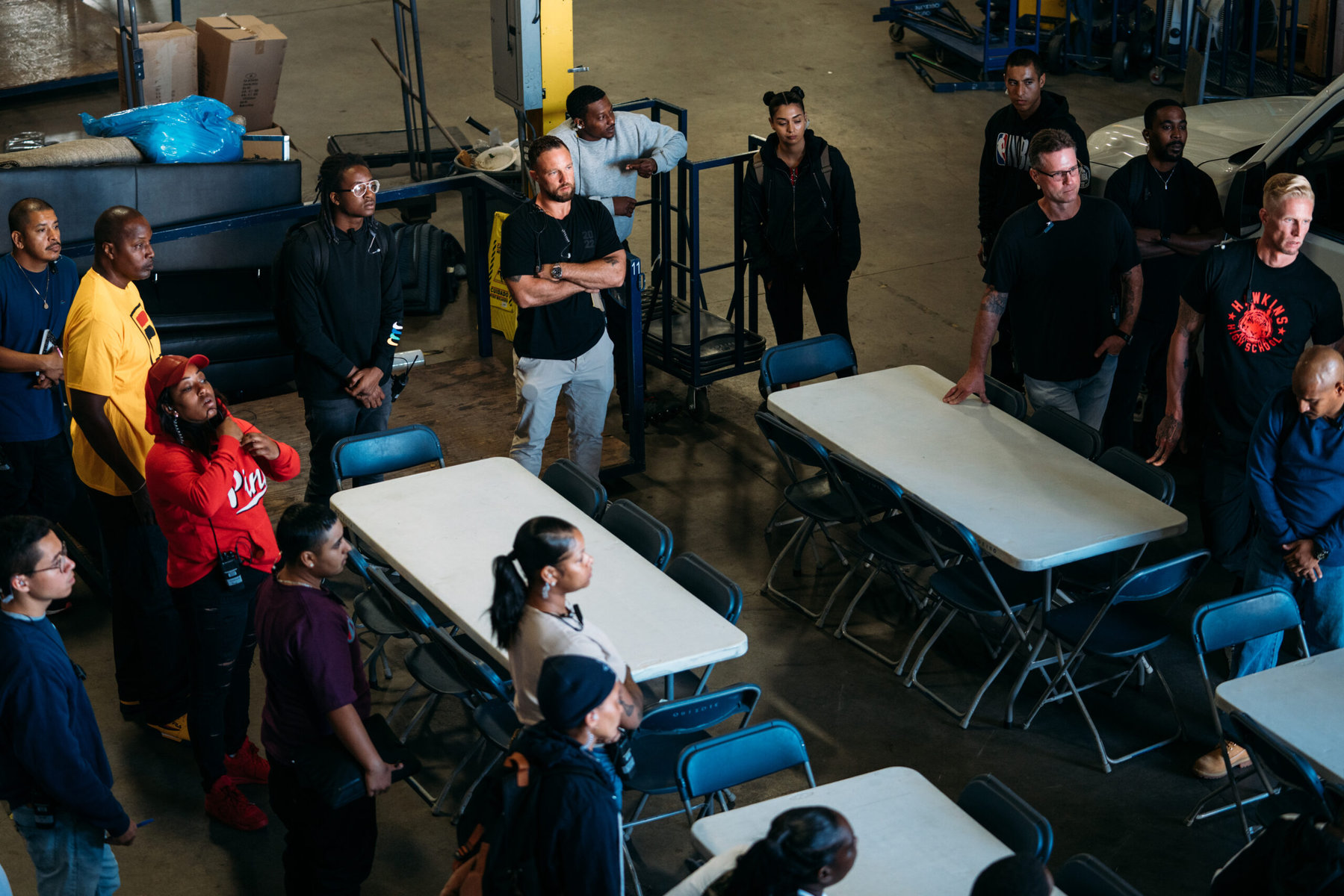
The results rival virtually any job training program. Some 71 percent of ManifestWorks’ trainees are on welfare when they start the program — after a year, that number drops to seven percent on average, according to Seaver. And 92 percent of ManifestWorks alumni are employed full time with an average annual income of $62,000, up from the average of $12,500 when trainees first start.
The connections Seaver brings give the participants a genuine shot at achieving their Hollywood dreams. While union jobs with companies such as Disney or Universal usually require background checks, smaller production companies often hire freelancers without them. “A lot of times production people don’t really care where you were eight years ago,” Seaver says. “People in the industry come from all kinds of different places, so it’s a chance to start fresh.”
Dan Seaver had never been inside a jail before when he decided to answer a Craigslist ad in the early 2000s: A juvenile prison in Calabasas was looking for a journalism teacher to produce a prison newspaper. When he got there, his nervousness turned to shock at “how many kids were incarcerated for things like skipping school or fighting with their siblings. They had cops in the schools and if something like a fight happened you didn’t just get sent home, but a police report would be filed.”
Seaver struck up a connection with some of the teenagers, feeling simultaneously “pissed off” about what he perceived as criminalized poverty and “a huge sense of compassion for these kids. They’re awesome, they’re smart, they’re super dynamic.”
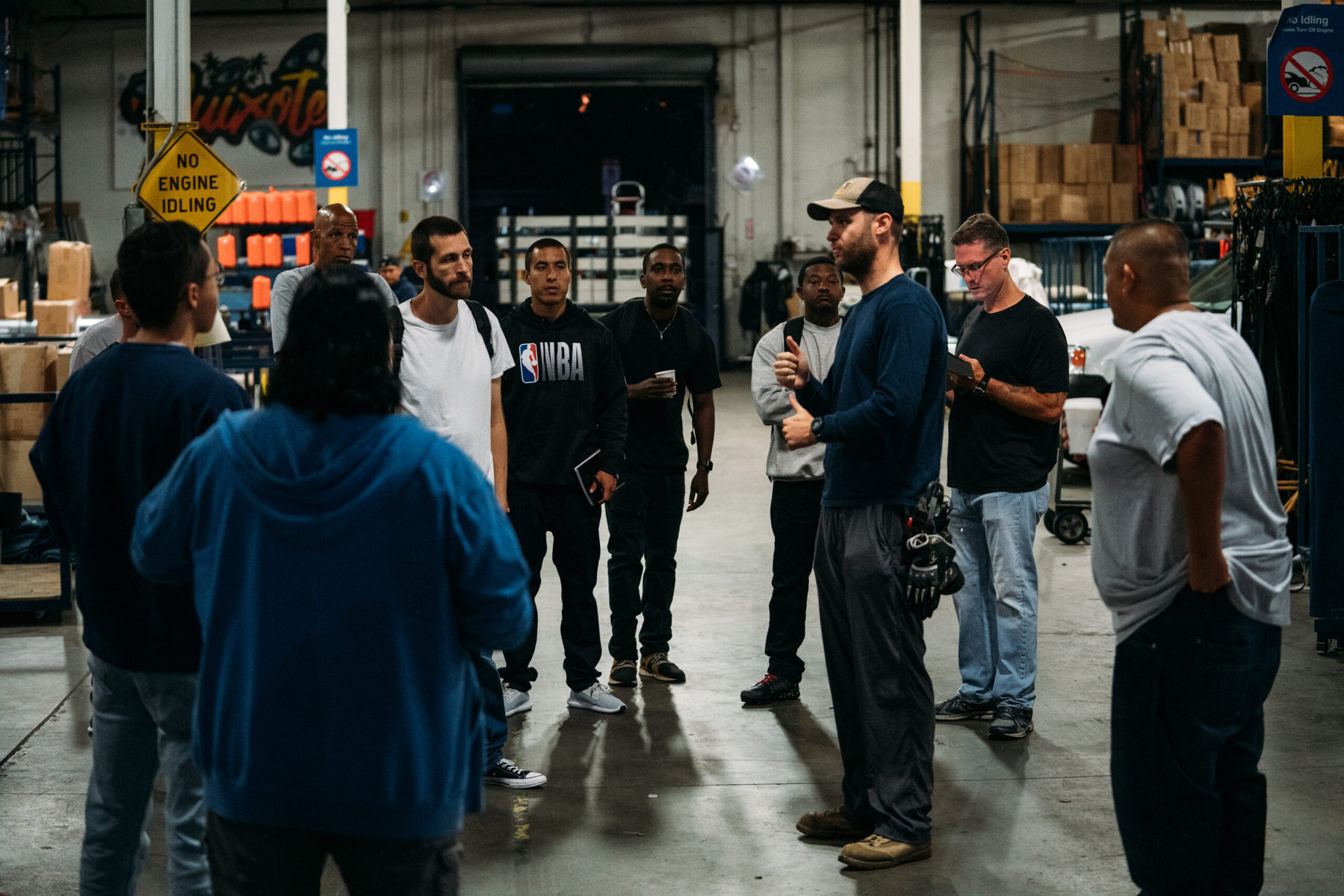
Working on a prison newspaper with them was fun, but “I was not solving any problems,” he remembers. “Loving them and giving them donuts wasn’t really changing the course of things.” He homed in on economic opportunities as “the single biggest thing to tackle generational poverty.”
His then-spouse was a film director. Having worked as a production assistant himself early in his career, he thought this could be an easy entryway into well-paying jobs for former inmates.
When he got the first former inmate a job on a set, it went well at first — until it didn’t. “As I anticipated, he was super excited and appreciative,” Seaver says. “It was gold right away. A PA is the lowest level of Hollywood jobs, and a lot of people feel too proud to do it while they’re on their way to becoming the next big cinematographer, but these kids are so humble, they have no sense of entitlement.”
However, when his student climbed up the career ladder, things started going awry. “There was a lot he didn’t know, like how to do expense reports, read call sheets, etc.” Based on these lessons learned, and with input from acquaintances in the industry, Seaver and his co-founder, documentary filmmaker Chip Warren, designed ManifestWorks’ first curriculum in 2014. Seaver literally asked other parents in his own child’s kindergarten about job opportunities. “There was an agency guy, a composer, a production designer,” he says. “I just pulled them all together and asked, ‘Would you help me with this?’”
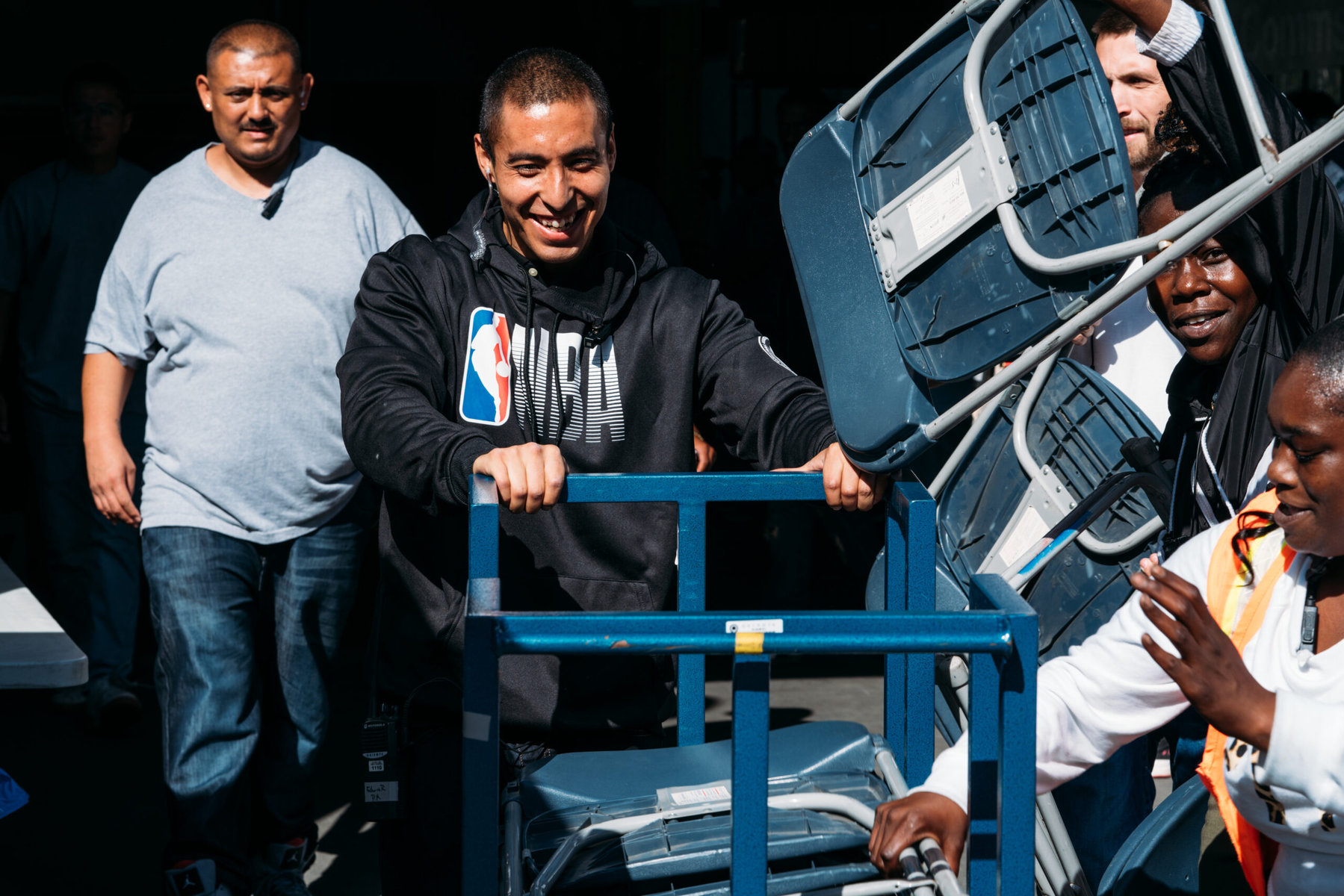
His rolodex has only gotten bigger since: Warner Bros, Sony, Apple, Netflix, Disney, Meta and other industry giants have hired ManifestWorks graduates. About 500 people apply to ManifestWorks each year, and more than half of them will ultimately decide that the film industry, with its grueling hours, is not for them. Those that stick with it “are hungry and driven,” Seaver says of the successful graduates.
Graduates like Terrell Johnson, who spent 15 years in prison for armed robbery and was living in transitional housing when a roommate told him about ManifestWorks. Johnson had always loved music and was immediately excited about the opportunity to get into sound engineering. “PAs are a dime a dozen,” he says. “So we work super hard and make everybody’s job easier, so people go, ‘Wow, who is that guy?’” ManifestWorks trains participants to be extremely punctual, or they lose their spot in the cohort. “When a job starts at 6 a.m., ManifestWorks wants you there at 5:30 a.m. They teach you to always be on time. I was one of the better PAs from the start because [ManifestWorks graduates] work harder and are over-prepared.”
Johnson’s first job after finishing the ManifestWorks training in the summer of 2022 was an insurance commercial with J.K. Simmons. After that, he worked on a Nike ad with LeBron James, which he found “super cool.” Johnson is married now, with a six-month-old baby boy, and he’s inching closer to his dream: Being the sound mixer on a blockbuster film.
According to UCLA, half of moviegoers are people of color, yet diversity on set remains lacking. Less than 15 percent of directors and 14 percent of writers are non-white. Changing this may not be ManifestWorks’ primary objective, but because poverty primarily impacts non-white people in Los Angeles County, the nonprofit ends up bringing more diversity to the film industry: Only 11 percent of ManifestWorks trainees are white.
ManifestWorks’ annual budget is nearly $1 million, and includes funding from the California Department of Corrections and Rehabilitation, as well as A-listers like Matt Damon. This support has allowed ManifestWorks to expand its scope. It connects participants and alumni with counseling, and even offers cash grants (ManifestSupport) and mid-career programming (ManifestMore) that includes community events, training for advanced careers, and access to unions and better-paying jobs. “Everybody who comes to us has been traumatized,” Seaver says matter-of-factly. “Helping them navigate that trauma is really important as they regain their footing, so their career path doesn’t get derailed by something that’s not their fault.”
None of the formerly incarcerated trainees has reoffended, Seaver says, “which is an astonishing statistic in California, where about 60 percent of former inmates go back to prison.” Only one formerly homeless ManifestWorks alumni ended up in prison.
And while the writers’ strike has impacted film sets since its start in May 2023, commercials and some TV productions were still providing jobs.
Rebecca Garcia used the downtime to work on her own short film. Growing up in Los Angeles and watching classics on TV with her brother, she always dreamed of working in the film industry. For years, she juggled odd jobs while attending film school. At 23, she became one of ManifestWorks youngest applicants, and is now a union member and a location manager. “It was a blessing because it changed my life,” she says from her apartment in Burbank. “It molded me and taught me how to be professional. I was really shy, and the program helped me come out of my shell.”
During her training, she landed a job as a PA for a Harry Potter commercial at Universal Studios. “It was the day before Harry Potter World was released and I got to see it before it went public,” she remembers. “I cried on my way home, because I was so happy I’d made it. I mean, not made it, but I was part of a film production. When I came home, my brother said I smelled of trash and puke because I’d been hauling trash all day. I was just having so much fun, I didn’t even care.”
She’s now drafting her second short film with other ManifestWorks alumni, about a young girl who crosses the Mexican border and becomes entrapped by vampires. It has a Hollywood ending, just like her own life story.


